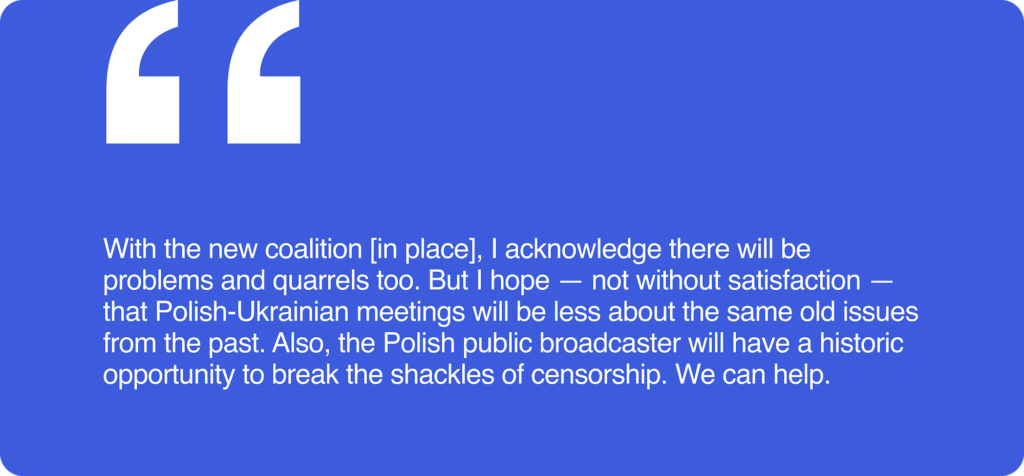European voters have just taught us that the rise of the far right is not an incontrovertible fate.
I had no optimistic scenario in my mind, while waiting for the results at Civic Coalition leader Donald Tusk’s headquarters during the election night. Having seen the re-election of Viktor Orbán in April 2022, I knew how hard it was to change the rulers, when they have imposed their own rules. If a party controls the media, and influences the judges, their grip on power becomes stronger, and the more difficult it is to subvert the regime.
But then voters came with their push for a change. Although both the Spanish Popular Party and the Polish Law and Justice (PiS) party were ready to break the cordon sanitaire and use far-right seats as a crutch to bring them into government, the people in both countries said no to this plan: neither Spain’s Vox nor Poland’s Konfederacja performed well at the elections. This showed us how vibrant European democracies still are.
Before Poland’s elections, I visited the headquarters of the feminist movement “Strajk Kobiet” in Warsaw. I asked Marta Lempart, the leader of Polish pro-abortion protests, what had become of that unprecedented wave of dissent. She told me: “We changed our society; now we have to change politics.” The huge amount of young people, and women, that queued up to vote on 15 October, proved her right.
Law and Justice is still the party with most votes, and it still holds the levers of power: as Konfederacja’s leader Sławomir Mentzen said, “if Tusk wants to govern Poland, he will have the President of the Republic, the public TV and the Constitutional Court against him.”
Nevertheless, a majority of Polish voters asked for change. The high level of participation in the polls, the pro-European and pro-rule of law stances that the winning opposition embodies, provoked “a sigh of relief in Brussels and many capitals”, as Dutch MEP Sophie in’t Veld told me: “Europe was pulled back from the brink”.






